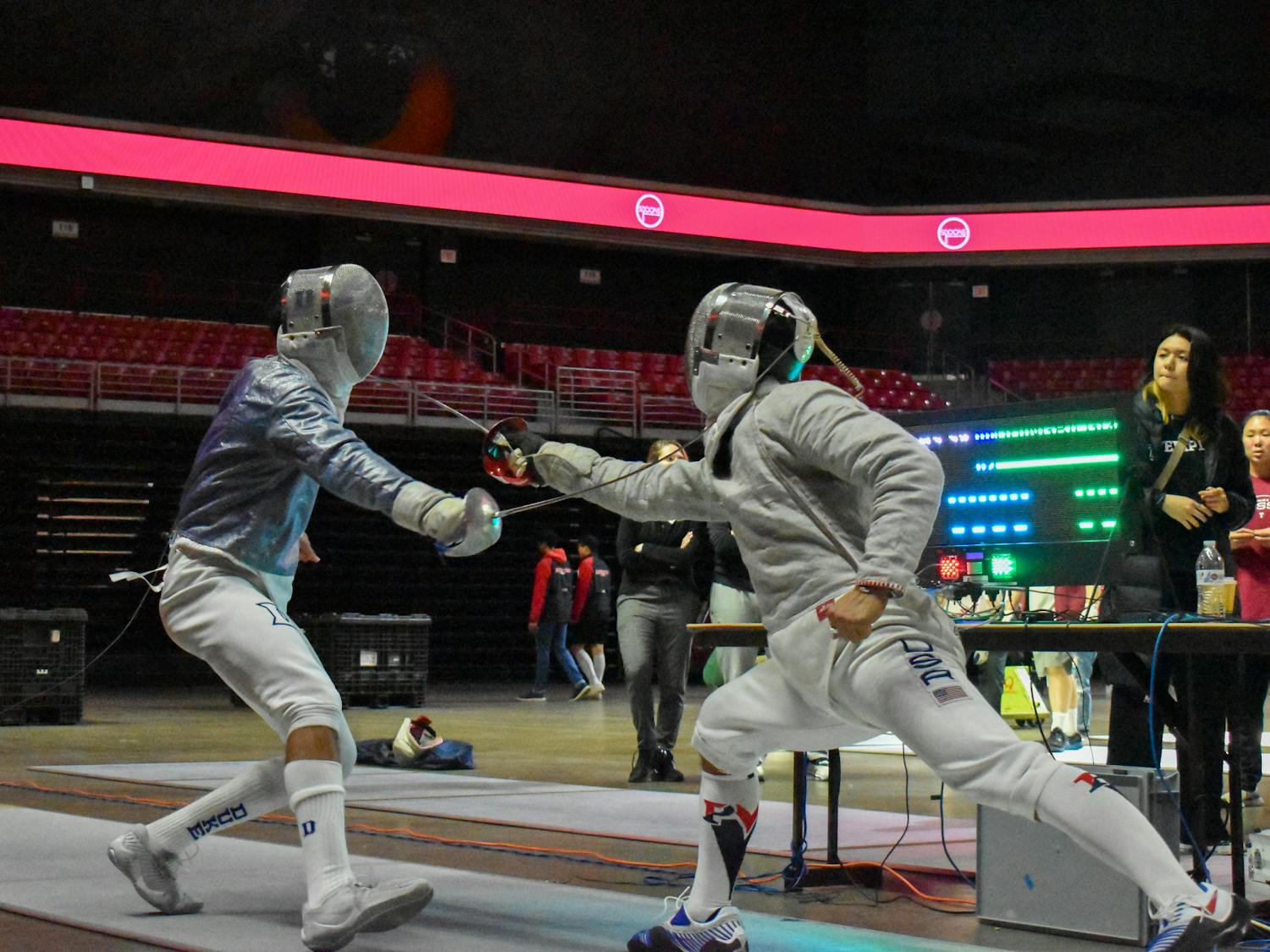The only thing pretty about that was the uniforms.
In their home and Ivy League opener, Penn football failed to muster much offense against Dartmouth before losing, 28-15. The Quakers (1-2, 0-1 Ivy) were wearing their new red throwbacks to honor the 1970s, and that was about the only thing worth looking at as a Penn fan for much of the game.
The Red and Blue went down early when a blown assignment allowed Dartmouth running back Zack Bair to score on a play-action pass — his first of two touchdowns. A Penn fumble a few possessions later became a Dartmouth defensive touchdown.
Meanwhile, the Penn offense struggled. The opening possession started out promisingly enough; senior quarterback Nick Robinson and running back Karekin Brooks alternated chunk gains — four plays gained the Quakers 48 yards. That was the only sustained momentum the offense had all game. The drive stalled there leading to a missed field goal.
Penn had one play of over 15 yards before the game was out of reach: Brooks’ 43-yard touchdown run in the second quarter. Beyond that, Dartmouth (3-0, 1-0) seemed content to bend and not break on the way to a comfortable victory.
“[The Big Green] are a penetrating defensive front, and they push the pile,” coach Ray Priore said. “The screen game was one of our plans going into the game.”
Game plan or not, Penn’s inability to gain chunk yardage left many drives dead on arrival.

RELATED:
Penn football falls to Dartmouth, 28-15, in home opener
Sushi, steak, and pancakes: Penn offensive linemen build tight bond out of the spotlight
With about two minutes remaining in the game, the Penn offense woke back up. After Dartmouth scored its fourth touchdown with just under four minutes to play, Penn drove the length of the field — 75 yards — in just 1:42 of game time. The Quakers still needed two touchdowns in two minutes to win the game, and briefly it looked almost plausible. An onside kick got the ball back in Robinson’s hands, but the drive stalled after two sacks forced a fourth and 23.
Penn was without wide receiver Ryan Cragun, who led the team in receiving by a wide margin after two games. Missing his explosiveness hurt, and the offense felt one-dimensional and stagnant. Dartmouth was ready for the barrage of screens and runs Penn tried, and the offense didn’t deviate from that plan until late in the fourth quarter.
Outside of the final three minutes, the Penn offense wasn’t just losing, it was passive. Missed opportunities plagued the offense.
One play in particular stands out. In the first quarter, just after Dartmouth’s first score, Penn ran an identical play. A play-action wheel route left Brooks wide open on the sideline with nothing but daylight in front of him. Robinson missed the throw, leading Brooks out of bounds for an incomplete pass. A completed pass there would have been an almost certain touchdown.
The telltale stat: Through 57 minutes of football, Penn’s offense had scored one touchdown — for both teams.
The brighter spot, although similarly unexciting, was the defense. That unit failed to grab a turnover, but did hold the Big Green offense to just 21 points. Until the back-breaking 8:24 minute drive in the fourth quarter, Penn’s defense kept the offense in the game.
Priore likes to pick one or two plays to boil the game down to. His analysis is often right in that a handful of big plays decide most football games, but the unspoken secret is that the smaller plays — routine third downs, open receivers down field, missed blocks here and there — could easily become big turning points in hindsight. Priore picked out Dartmouth’s first two scores as key turning points. Just as influential though, were the dozens of plays in between where the Penn offense failed to make something out of nothing.

THEODOROS PAPAZEKOS is a College senior from Pittsburgh and Senior Sports Editor for The Daily Pennsylvanian. He can be reached at papazekos@thedp.com.









